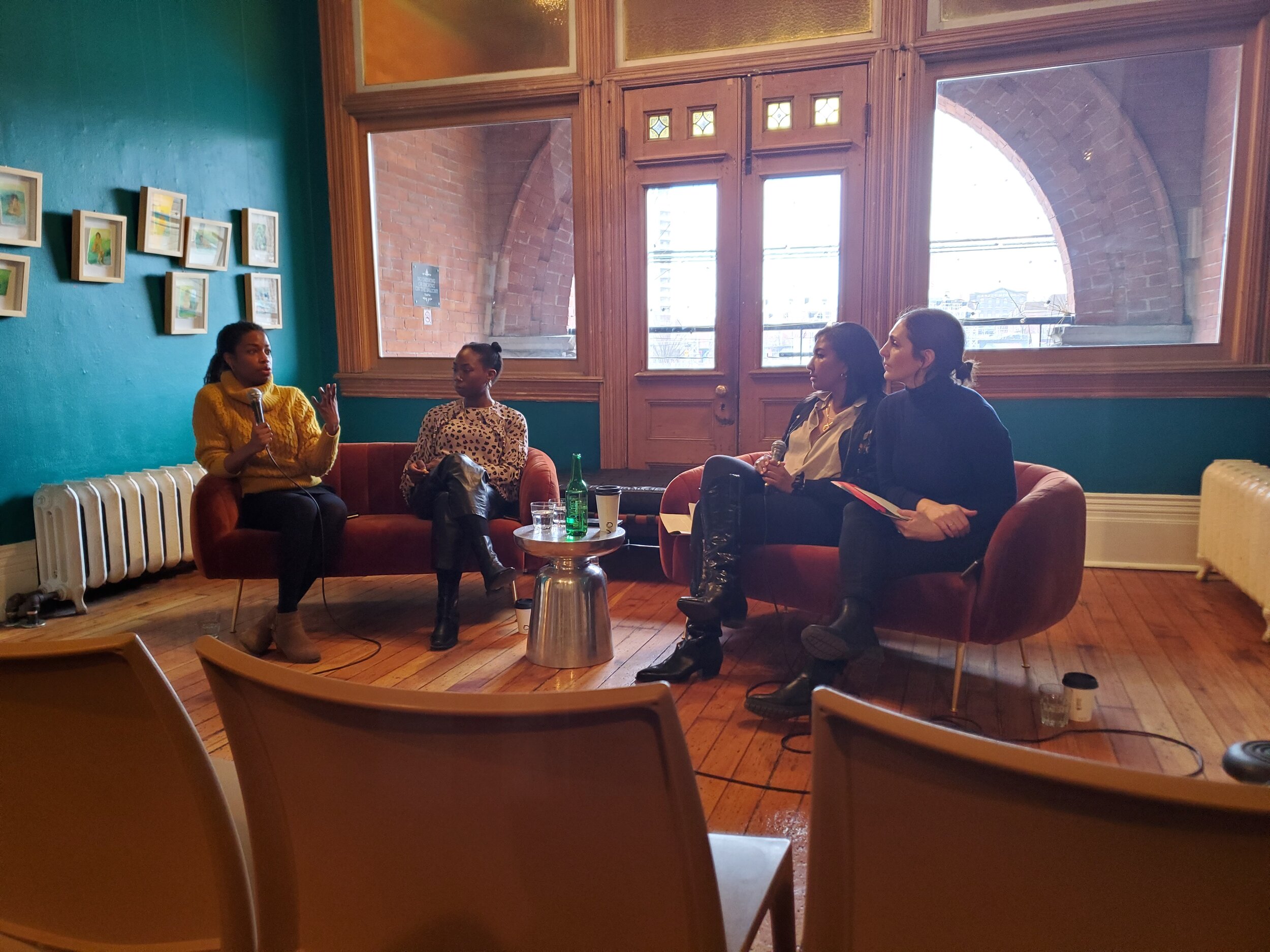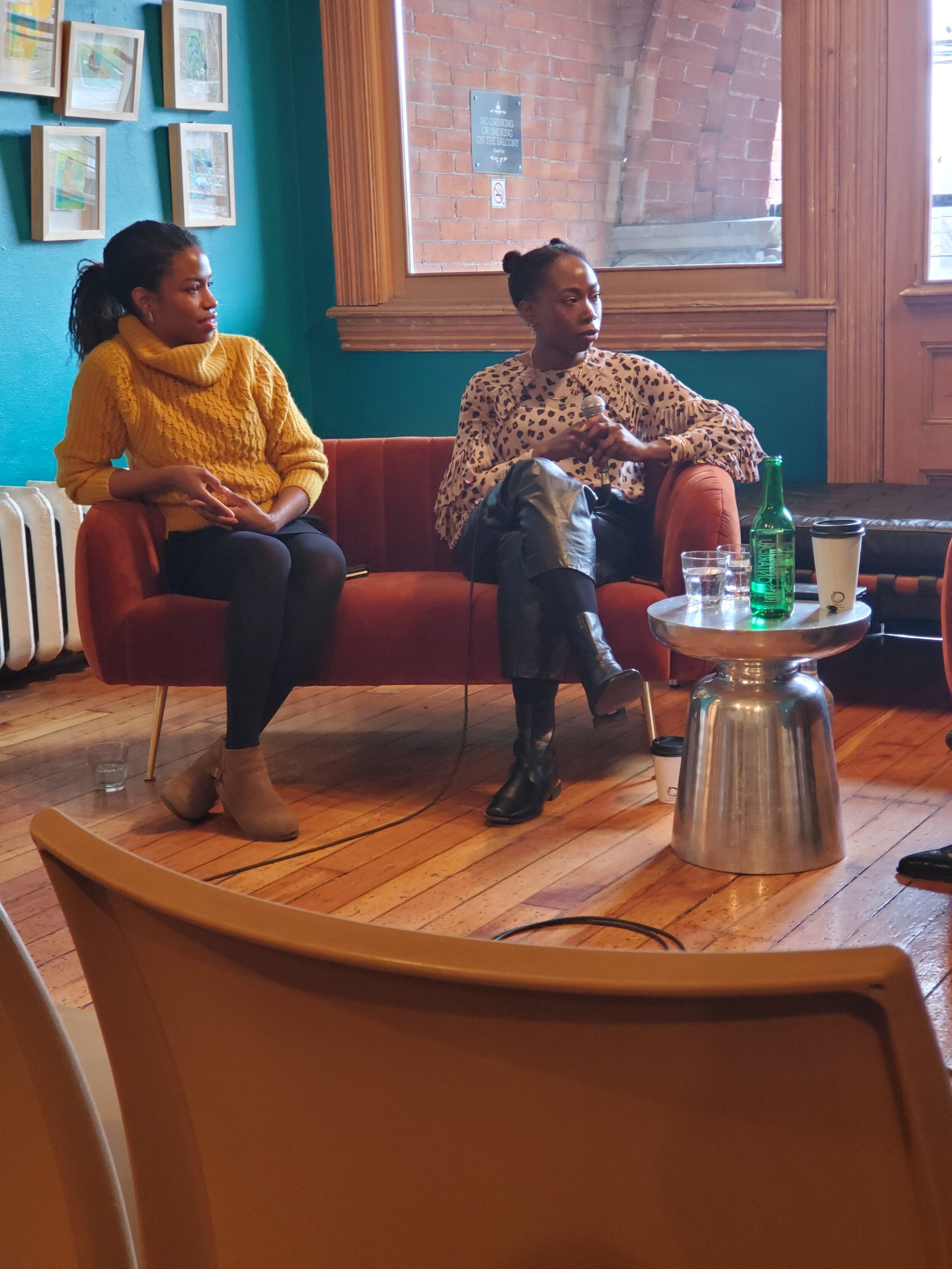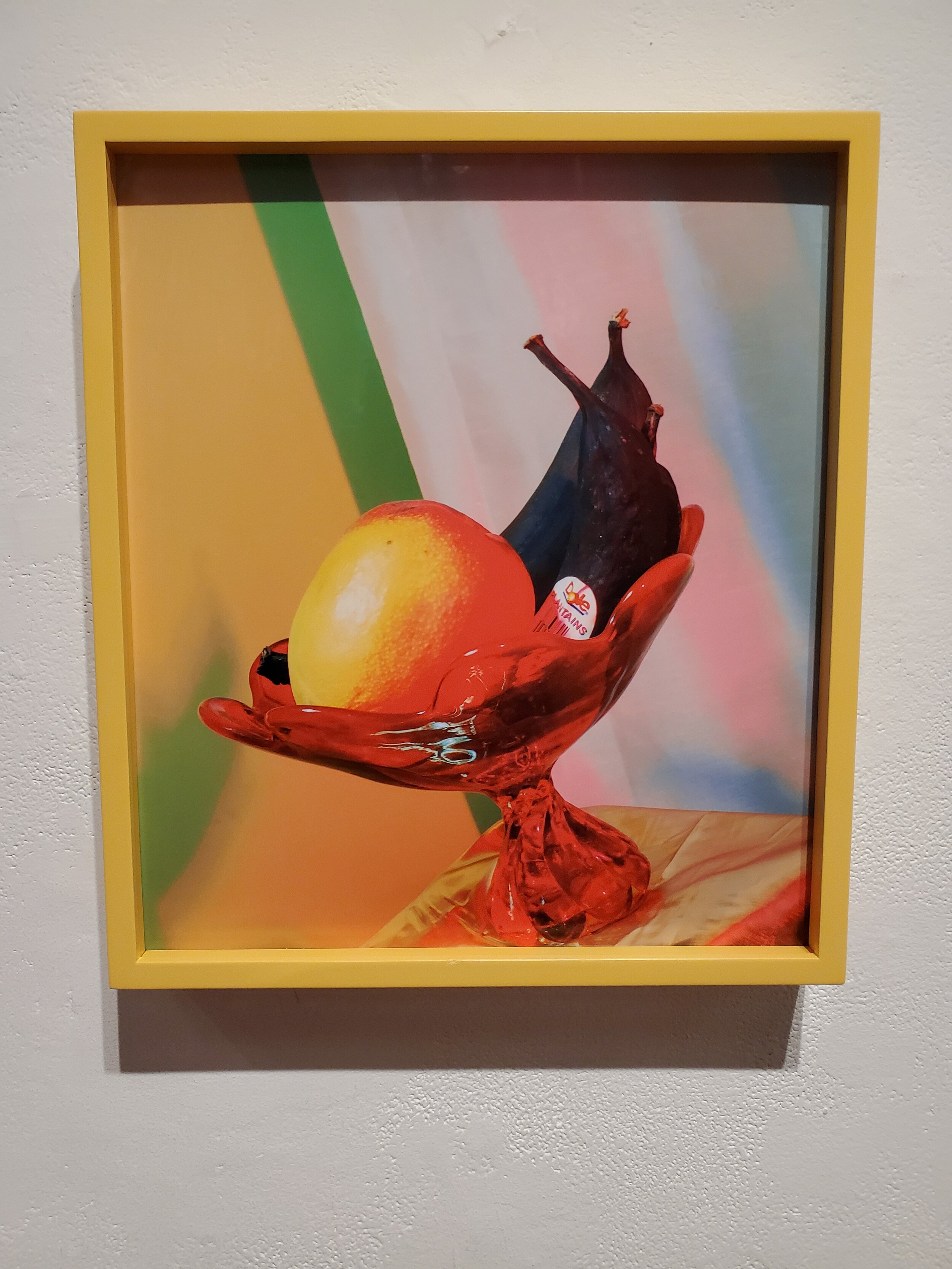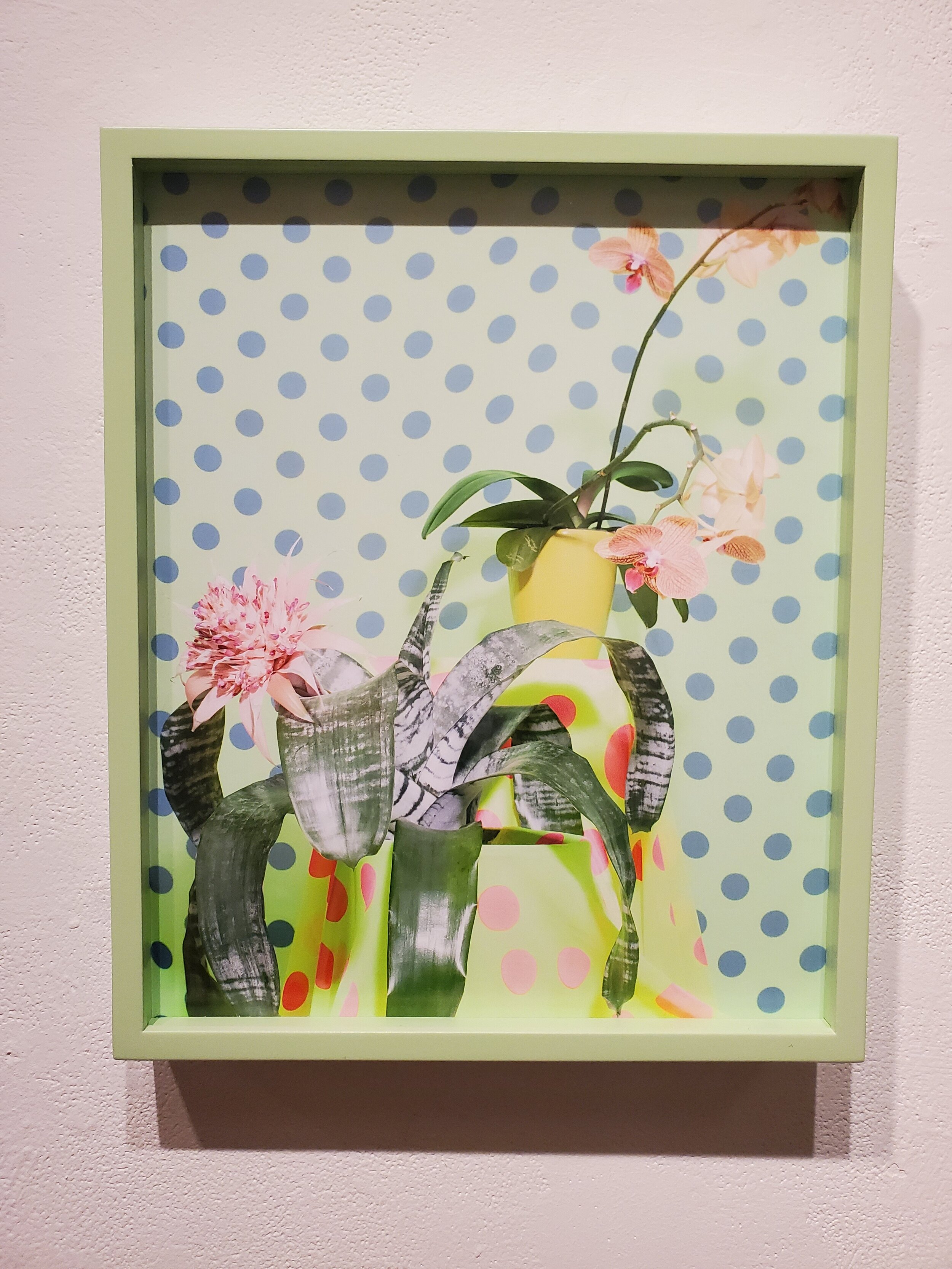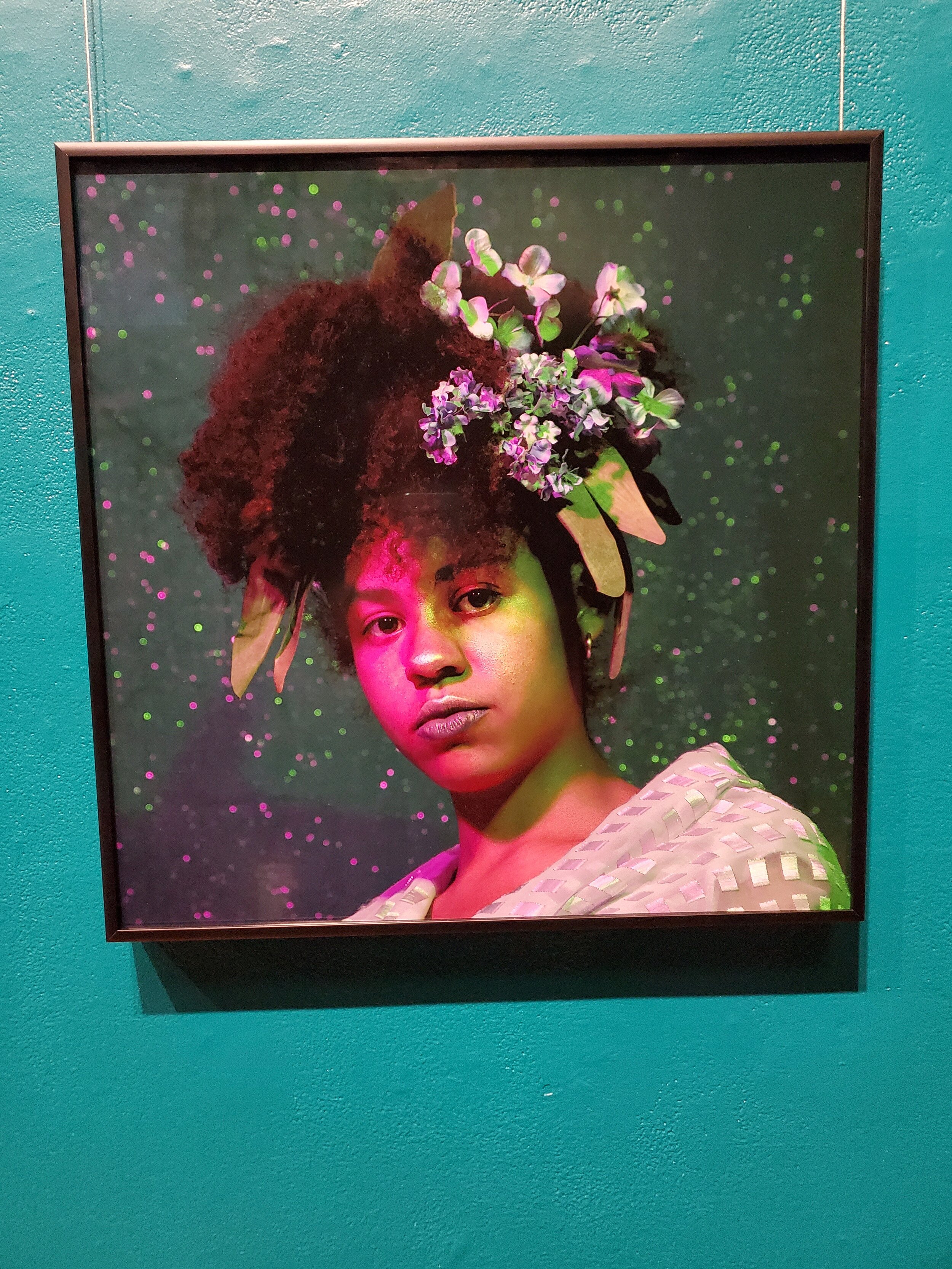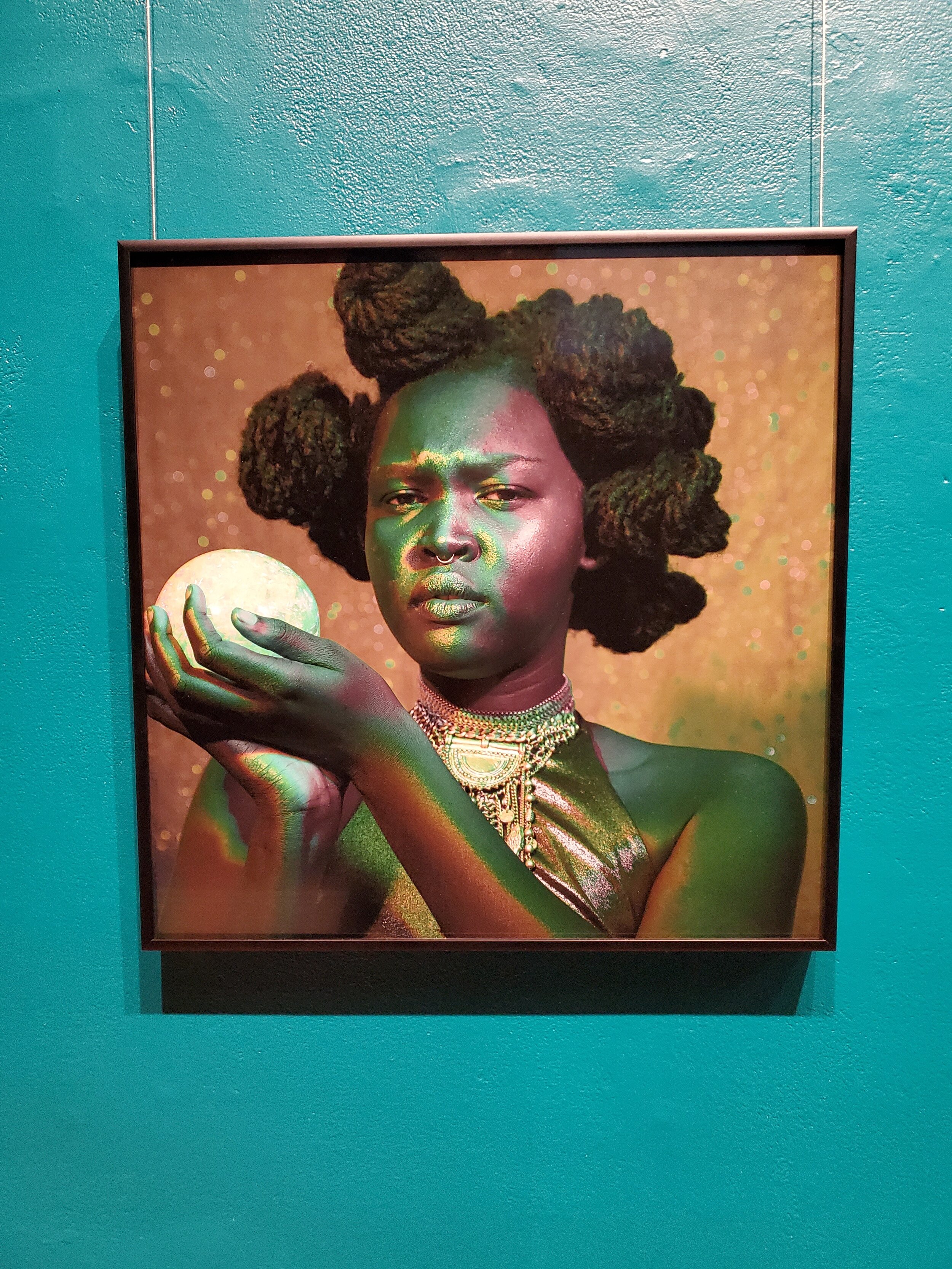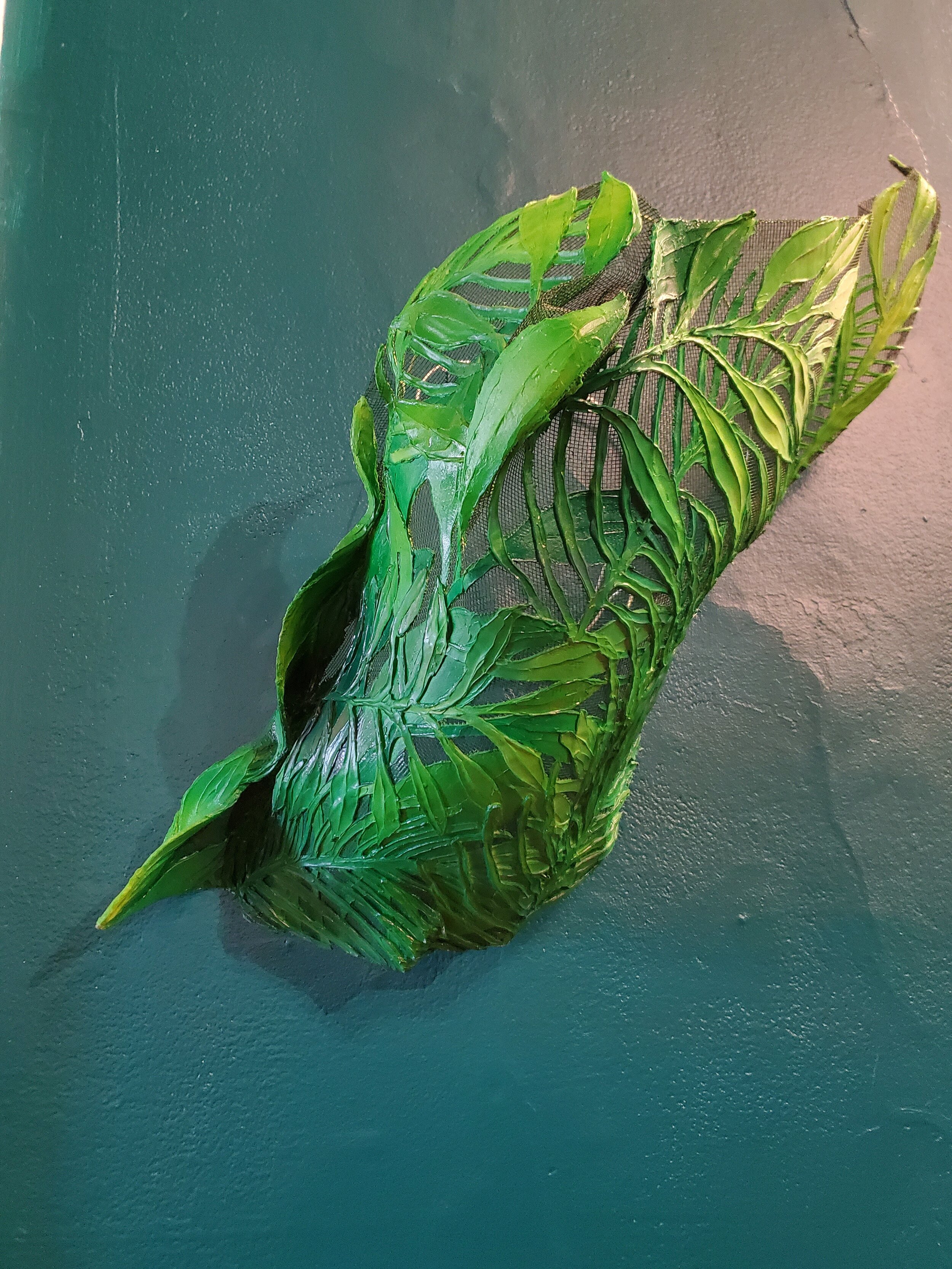We were not from the place where we lived and we could not remember where we were from or who we were. My grandfather could not summon up a vision of landscape or a people which would add up to a name. And it was profoundly disturbing.
Dionne Brand, A Map to the Door of No Return
This excerpt is found in the exhibition guide and at the top of the curatorial statement of the exhibition Handle with Care. A Map to the Door of No Return is a book that explores the relevance and nature of identity and belonging in a culturally diverse and rapidly changing world. It was published almost 20 years ago and is still timely.
The month-long exhibition is presented by Wedge Curatorial Projects and is the first all women Wedge show. It’s on from January 31st to February 29th, 2020 at The Gladstone Hotel in Toronto. The photographic exhibition and site-specific installation brings together the work of Canadian artist Dainesha Nugent-Palache and American artist Adrienne Elise Tarver. Through the artists’ multidisciplinary practices’ Handle with Care explores themes of domesticity, the Black spatial imaginary, histories of displacement, and subsequent boundaries of everyday life. The two works complement each other conceptually. I kicked off the first day Black History Month/Black Futures Month by attending the performance piece and artist talk. Movement artists Camille Rojas, Nyda Kwasowsky and Danielle Smith previewed their February 26 performance piece. The preview was followed by artists Dainesha Nugent-Palache and Adrienne Elise Tarver in conversation with curators Emilie Croning and Maria Kanellopoulos.
Adrienne Elise Tarver and Dainesha Nugent-Palache in conversation with curators Emilie Croning and Maria Kanellopoulos.
Nugent-Palache came to be interested in plants through archival family photos. She’s interested in the idea of plant migration and people migration and noted that many plants that you see in Jamaica originate from Africa. Those same plants that you see outside in Jamaica you can now see indoors elsewhere. As a Jamaican born in Canada, who has been to Jamaica several times, “back home” is not back home for her, it is for her parents. She said that in a way she feels like a colonial figure when she collects information and stories for her art. She asked the question “What does it mean to be Jamaican?” There are so many different influences, different people all came to be there in different ways – she is looking to explore this more in her practice. Her portrait series visualizes Toronto’s Black female arts community. The artist was tired of the lack of representation of Black women. I love that her work presents plants in the future and Black women in the future. For me it speaks to resilience and longevity. I really related to almost everything she was saying. There are no women in her still life photographs, but the images are still heavily informed by women – many of the items pictured belonged to her mother and other women in her family. She recounted stories of hating some of the items as a child and even breaking them on purpose, but now she values them and keeps them to use for her art and to connect to the women in her family.
Dainesha Nugent-Palache
Artwork by Dainesha Nugent-Palache
Tarver’s hanging tropical foliage transforms the space, creating an immersive environment. The installation includes wearable pieces. The artist said that she created the pieces, but they weren’t intended for her to wear. This was her first time working with performance/movement artists. There will be an extended performance before the show closes. She talked about how to cultivate people and plants in places that they do not originate from. She is African American and has limited knowledge of her family history. She asked, “What does looking for origin stories do to us in the present moment?”. I thought that was an interesting question, a good question. I’m still thinking about it. I don’t have a good answer. With her watercolour portraits, Tarver explores the narratives of what we’ve been presented about Black women. She said she aims to “recomplicate the narrative” and that she’s been asked who the women are. They are no one and everyone.
Wearable art by Adrienne Elise Tarver
Watercolour portraits. Adrienne Elise Tarver
Don’t miss these upcoming events related to the exhibition.
Handle with Care Movie Night: Kathleen Collins’ Losing Ground
Wednesday, February 19, 6—9pm
Paradise Theatre, 1006 Bloor St W
Rediscover Kathleen Collins’ powerful 1982 debut feature film Losing Ground. Exploring feminism and the inner workings of Black lives, the restored classic tells the story of a marriage of two people, both at a crossroads in their lives. Film introduction by Kenneth Montague and post-screening discussion TBC. Co-presented with Paradise Theatre. Free tickets available through paradiseonbloor.com.
Exhibition Walk-Through & Performance Piece
Wednesday, February 26, 6—8pm
The Gladstone Hotel, 2nd floor gallery
Curators Emilie Croning and Maria Kanellopoulos tour audience through Handle with Care. Followed by a performance as movement artists Camille Rojas, Nyda Kwasowsky and Danielle Smith donning wearable pieces by Adrienne Elise Tarver.
Story by Glodeane Brown
If you liked this post please like, comment, and share.


